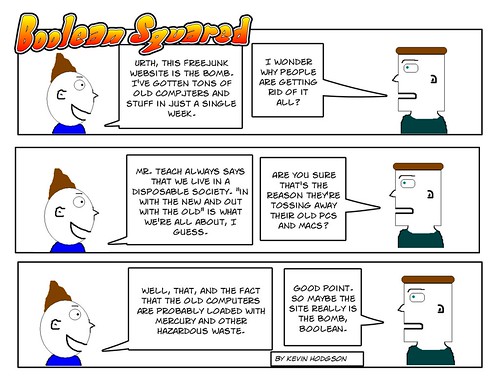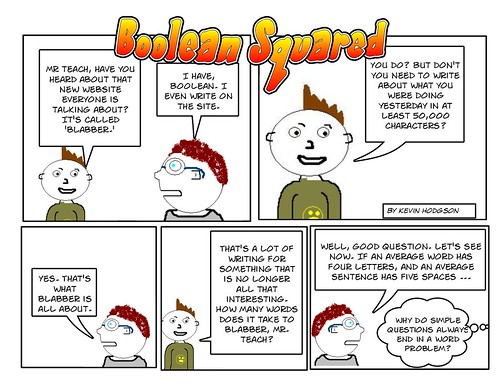This afternoon, a group of teachers at my school will convene the first Community of Practice (CoP) for technology. This is an interesting development, I think, and one I certainly welcome as we move further into technology integration. We have three computer carts (two PCs and one Mac), a handful of Interactive Boards, and assorted other stuff floating around the building.
Since last year, our school has moved into regular team meetings — first, it was known as Professional Learning Communities and now it is Communities of Practice (I see a Boolean comic coming …). Whatever we call it, this networking is important to us, even as we work as a school to figure out a good balance between setting goals for the work in this circles.
My hope is that our Technology CoP group will think about ways we can share out the technology we are doing with our students with the rest of the staff and consider ways to move us, as a whole, forward. My guess is that many people who say they are using technology as only using it for students as “gatherers” of information (ie, kids go to web and copy information) , and not as “creators” of content (ie, making movies, podcasts, etc). I’m going to try to be persistent, without annoying everyone, that this is the direction we should be going — helping students to become “composers” in a digital world through the use of a myriad of technological tools available to us. I may even print out the statement by National Council of Teachers of English that now puts emphasis on multimedia in the Language Arts field.
My worry is that this group will be seen as the place where we talk about what kind of technology we need to buy next — software, hardware, etc. — and while that is important to a degree, I think we have a lot already here at my school. I want to focus on practice, not purchase.
It’s very heartening that our principal is excited about this new technology CoP group and is fully supportive of the concept. He really does believe in bringing teachers along in this direction but also knows that there will be pockets of resistance to technology. I know that, too.
I wonder if you have a similar group at your school or organization? If so, I would love to know how it is going and what advice you might give to us as we move forward on our own baby steps.
Peace (with others),
Kevin





